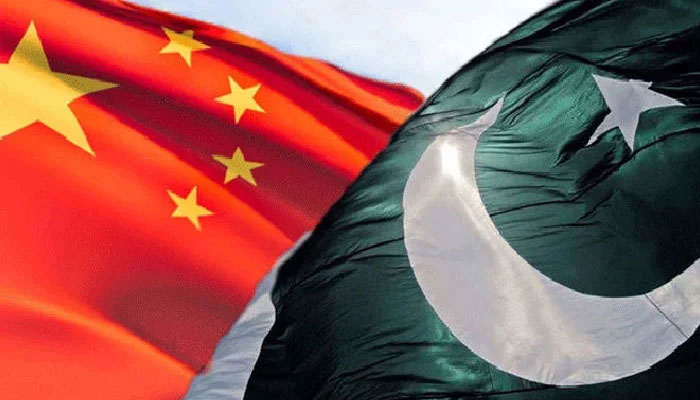Mediating peace
As tensions between US and China intensify, Pakistan will need to juggle its foreign relations ever so tactfully
Pakistan has over the years had to walk a very tight and narrow balancing act in its ties with the US and China – both important countries for varying reasons for us. Now, as tensions between the US and China intensify, Pakistan will need to juggle its economic, security and foreign relations ever so tactfully. One way it can do that is by playing mediator – a role it is not completely alien to (remember 1971?). This had been articulated in 2022 by PM Shehbaz Sharif and has now been reiterated by PPP Chairman Bilawal Bhutto Zardari, who has said that Pakistan has the potential to play a vital role acting as a bridge between these two superpowers. During his remarks on the sidelines of the Munich Security Conference, Bilawal also highlighted that Pakistan has historically worked to facilitate diplomatic ties, especially between global powers with conflicting interests. Pakistan’s position as a bridge, he argued, is integral to its future foreign policy approach. These sentiments reflect a sense of pragmatism: while other nations might capitalise on the intensifying rivalry between the US and China, Pakistan should – and would – wish to ensure that it remains a neutral and constructive partner to both.
This is not only a matter of political ambition but also a recognition of the country’s unique geopolitical position. Pakistan’s relationship with China is cemented through economic and strategic cooperation, notably the China-Pakistan Economic Corridor (CPEC). On the other hand, the US remains an important partner, particularly in counterterrorism efforts and regional stability. However, the US has increasingly shifted its focus to India in its attempt to counter China’s rise. The former foreign minister is also right in his estimation that if the US continues to frame India as a counterweight to China, it will inevitably affect the balance of power in the region, particularly through the ongoing arms race between India and Pakistan. That said, trade with India is not something Pakistani politicians are not thinking of as is evident by Bilawal’s remarks. The path to peace though is still challenging, particularly given the ongoing territorial disputes. Pakistan’s security challenges have further complicated our foreign policy – especially the vacuum left by the hasty US exit from Afghanistan.
In a world where national interests often collide, an emphasis on a balanced, multi-faceted foreign policy strategy is necessary and has been a cornerstone of Pakistan’s foreign relations for a while now. We have the ability to engage with both China and the US – while simultaneously exploring new avenues for regional cooperation with India. If Pakistan can somehow manage to tackle its terror challenge, and position itself as a bridge rather than a battleground, our security and economic position would be far less tenous. Obviously, all this is conditional on tangible political stability as well as external realities such as the US actually wanting to shake off the tensions that have risen in the past month or so between the Americans and China. What would be best for the world would be a far less combative superpower structure.
-
 Jennifer Hudson Gets Candid About Kelly Clarkson Calling It Day From Her Show
Jennifer Hudson Gets Candid About Kelly Clarkson Calling It Day From Her Show -
 Shamed Andrew Was With Jeffrey Epstein Night Of Virginia Giuffre Assault
Shamed Andrew Was With Jeffrey Epstein Night Of Virginia Giuffre Assault -
 Shamed Andrew’s Finances Predicted As King ‘will Not Leave Him Alone’
Shamed Andrew’s Finances Predicted As King ‘will Not Leave Him Alone’ -
 Bad Bunny Faces Major Rumour About Personal Life Ahead Of Super Bowl Performance
Bad Bunny Faces Major Rumour About Personal Life Ahead Of Super Bowl Performance -
 Sarah Ferguson’s Links To Jeffrey Epstein Get More Entangled As Expert Talks Of A Testimony Call
Sarah Ferguson’s Links To Jeffrey Epstein Get More Entangled As Expert Talks Of A Testimony Call -
 France Opens Probe Against Former Minister Lang After Epstein File Dump
France Opens Probe Against Former Minister Lang After Epstein File Dump -
 Last Part Of Lil Jon Statement On Son's Death Melts Hearts, Police Suggest Mental Health Issues
Last Part Of Lil Jon Statement On Son's Death Melts Hearts, Police Suggest Mental Health Issues -
 Leonardo DiCaprio's Girlfriend Vittoria Ceretti Given 'greatest Honor Of Her Life'
Leonardo DiCaprio's Girlfriend Vittoria Ceretti Given 'greatest Honor Of Her Life' -
 Beatrice, Eugenie’s Reaction Comes Out After Epstein Files Expose Their Personal Lives Even More
Beatrice, Eugenie’s Reaction Comes Out After Epstein Files Expose Their Personal Lives Even More -
 Will Smith Couldn't Make This Dog Part Of His Family: Here's Why
Will Smith Couldn't Make This Dog Part Of His Family: Here's Why -
 Kylie Jenner In Full Nesting Mode With Timothee Chalamet: ‘Pregnancy No Surprise Now’
Kylie Jenner In Full Nesting Mode With Timothee Chalamet: ‘Pregnancy No Surprise Now’ -
 Laura Dern Reflects On Being Rejected Due To Something She Can't Help
Laura Dern Reflects On Being Rejected Due To Something She Can't Help -
 HBO Axed Naomi Watts's 'Game Of Thrones' Sequel For This Reason
HBO Axed Naomi Watts's 'Game Of Thrones' Sequel For This Reason -
 King Charles' Sandringham Estate Gets 'public Safety Message' After Andrew Move
King Charles' Sandringham Estate Gets 'public Safety Message' After Andrew Move -
 Lewis Capaldi Sends Taylor Swift Sweet Message After 'Opalite' Video Role
Lewis Capaldi Sends Taylor Swift Sweet Message After 'Opalite' Video Role -
 Brooklyn Beckham Plunges Victoria, David Beckham Into Marital Woes: ‘They’re Exhausted As It Seeps Into Marriage
Brooklyn Beckham Plunges Victoria, David Beckham Into Marital Woes: ‘They’re Exhausted As It Seeps Into Marriage




